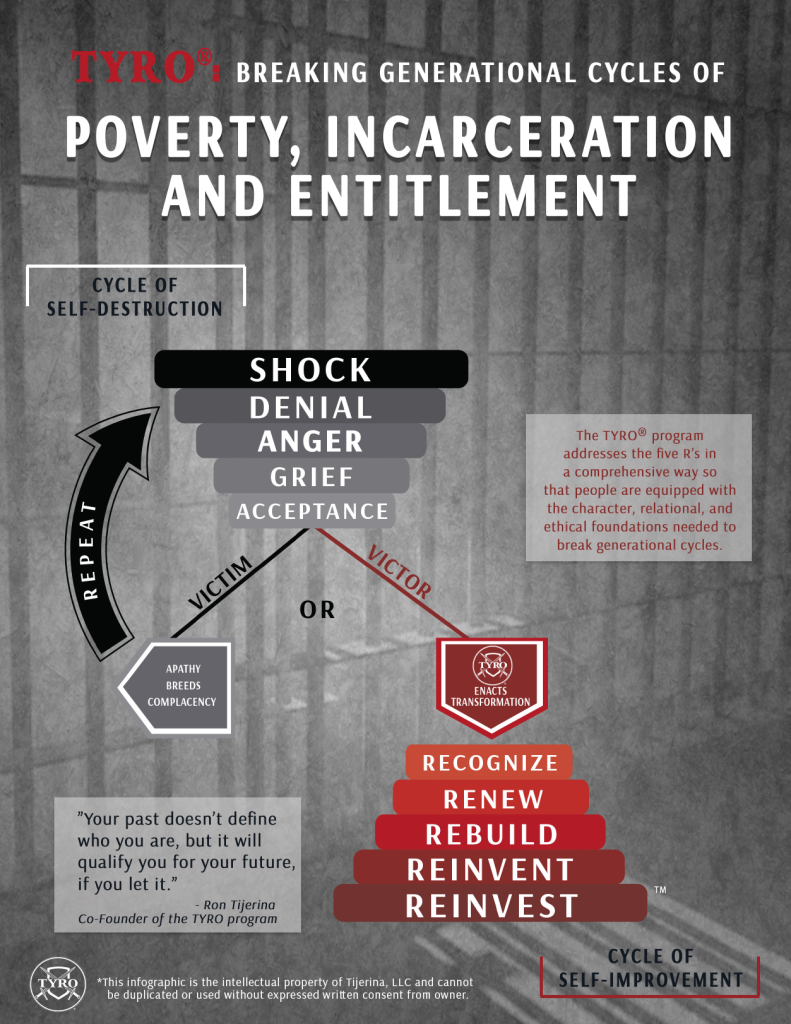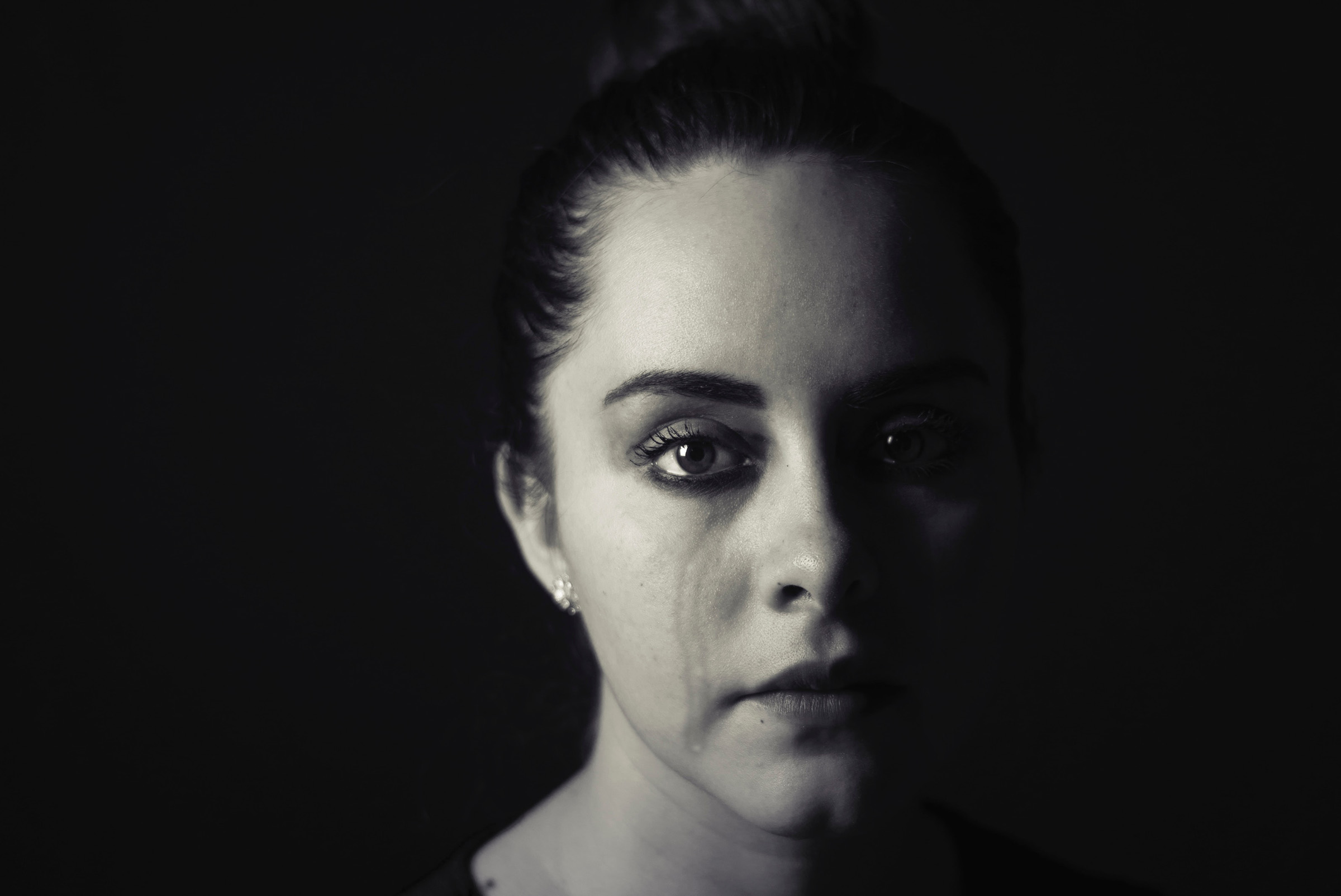If you are just joining me on my blog – Welcome! This blog post is part of a series I am writing on how to overcome a prison experience. I had been married for 5 years before my husband was sent away to prison on a 14-25 year sentence. The path out of the pain, shame, and loss was not easy. But it was sooooo worth every bit of effort we put into creating a new legacy for ourselves and our family. Today, we help thousands of men, women, and families face and overcome the trauma of a prison experience. We did it, we figured out how we did it, and now we teach others how to do it.
In my previous blog posts, I talked about the phases we enter and go through on our journey toward healing.
The first was Shock, followed by Denial, and then Anger. If you haven’t read those (at the risk of sounding self-promoting!) I highly encourage you to read them. There IS a process to get to the other side and become successful and happy. But if you don’t know the process, you are very likely to get stuck in a phase within the cycle of self-destruction. When that happens, this event becomes a lifestyle, and healing doesn’t come. Although the journey can seem intimidating, and it is most definitely going to challenge you, it can be a beautiful journey. You can do this!
Remember that it is normal to have times where you drift back and forth between 2 phases as you work through each level. Don’t get discouraged if you find yourself between 2 phases for a little bit.
When I finally realized I was living in anger, I was able to release it and move out of that zone. From anger, the next zone you will enter is Grief. Grief is also a difficult zone to overcome. Of all the tens of thousands of people we have worked with, Anger and Grief are the two zones where the most people get stuck. They decide this is the best it will be and stop trying to recover and heal.
When you allow yourself to see the magnitude of the problem your family must overcome and admit to yourself how badly it hurts, you are on the road to overcoming.
You must first allow yourself to feel the pain and acknowledge the depth of your loss. If you never give your self permission to grieve, you will never heal. It is necessary for everyone in your family – your man and your children – to navigate through grief so your family is empowered to move beyond their current circumstances and heal. Incarcerated partner, tarnished reputation, loss of income, and the loss of the life you had dreamt about are all painful by themselves. When you put them all together, it no wonder so many fall into despair!

Grief is too often viewed as weakness
Although grief is a healthy and natural response to this experience, it is too often viewed as a weakness. So, we fail to give ourselves permission to grieve, and we delay or cut off our ability to heal. During the beginning of the grief stage, we may retreat into anger as a self-preservation tactic. It may be that the challenge of allowing grief to surface threatens to swallow our tiny bit of hope and sanity. Unless you learn to see grief as normal, healthy, and temporary (not as the destination for your life), you are in danger of living in hopelessness and helplessness. Depression and thoughts of suicide can knock at the door of your mind. You may find yourself retreating to the Anger Zone. But don’t give up! Grief is just a stop along the road to healing.
Grieving is essential for children of incarcerated parents so that they can thrive.
Sadly, most children are not given the opportunity to grieve the loss of their parent to prison. Grieving the loss of the life we used to know alongside of the social loss of our partner is really important. No matter how complicated your life and your children’s lives were before your husband went to prison, the imprisonment is still a great loss. It can involve loss of the life they hoped for, loss of financial support, loss of opportunity, and certainly loss of status in society. Although pain and suffering can be great teachers, for a child these experiences can quickly become their enemy. Consequently, a child must be given permission to grieve the social loss of their parent. Without permission being clearly articulated, our children may feel that they have no right to grieve or feel sad. When a child feels the disdain of the adult world and hears the judgements against their parent (“You are better off without him,” “He is no good,” etc.), they may retreat into anger or depression.

Children feel the gravity of loss alongside us.
We may interpret our grief as something wrong with us thinking, “Surely the rest of the world is right, and I am wrong. I must be better off with him in prison, but I don’t feel better off.” A child may be getting the silent but deadly messages from the world around them such as, “You should not miss your parent, not feel sad that your parent is in prison, nor long for a different life. You should be experiencing relief and be happy that this ‘bad’ person is locked away.” But this is not how a child whose father is incarcerated feels. They are feeling the gravity of the loss alongside of us!
A child must know that what they feel is normal, acceptable, and that they have the power to work through it, so that they can move through their grief, experience the healing of the grieving process, and overcome the trauma of the incarceration of their parent. Too often, children are not afforded even simple, free, and life-changing supports that can mean the difference between healthy outcomes and becoming stuck in cycles of self-destruction.
If you are stuck in grief, you are likely feeling hopeless, sad, depressed, and forgotten.
It may seem that you and your family are invisible – except when someone wants to judge you. Grief tricks us into believing the lie that life will never get better than this. You will have to fight against this lie. It can and it WILL get better. As long as you keep focused, keep moving forward and keep dreaming about what you can accomplish, you will do it!!
Progressing through the Grief Zone can take a substantial amount of time. It is not a single event, but an ongoing process made up of messy attempts, setbacks, and persistent awareness of our need to grieve. It is OK to cry. You will feel better after a good cry! I have said it before, and I am sure I will say it again, writing in your journal will help you identify your feelings and help you make a plan to keep moving. Some people will move through these phases in weeks, others may take months or even years. The amount of time you are in the Cycle of Self-Destruction doesn’t matter. It only matters that you do not give up.
Once you’ve navigated the deep waters of grief, acceptance comes into view. The Acceptance Zone has its own challenges, but it provides a decision point that allows children and families to exercise control over their own lives and destiny. There is hope just around the corner and strength in the morning. Whatever you are facing, it is only temporary. You can do it!
I am rooting for you!

